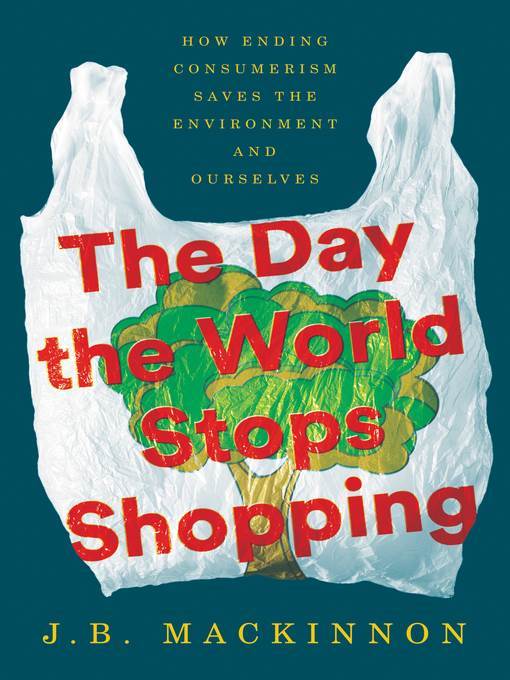
The Day the World Stops Shopping
How Ending Consumerism Saves the Environment and Ourselves
- اطلاعات
- نقد و بررسی
- دیدگاه کاربران
نقد و بررسی

April 1, 2021
An examination of the effects that the end of consumerism would have on society. Many politicians insist the economy will collapse if spending slows, while environmentalists warn we cannot sustain our current level of consumption. MacKinnon ponders what would really happen if we stopped shopping. While many of the concepts are familiar, the author digs deeper than most. Rather than allowing his conclusions to be directed by the theories of others, MacKinnon traveled the world, conducting interviews with experts and gathering information to support his findings. Among other places, the author visited Namibia, Ecuador, Finland, and Japan. The proliferation of the global pandemic, which occurred while MacKinnon was writing the book, allowed him to examine, in real time, the effects that changes in consumer spending could have. His conclusions should encourage readers to carefully consider their own habits. Throughout history, consumers have stopped shopping, albeit temporarily, for various reasons, including war and economic recession. Prior to the pandemic, MacKinnon notes, consumer consumption was often driven by impulse buying, vanity, and the desire to keep up with others. While consumerism initially increased at the beginning of the pandemic, as people began hoarding household and food items out of fear of shortages, a shift soon emerged. People continued to shop, but their purchases were more in line with intrinsic values, including spending more time with family and in nature. Rather than spending their money on luxury vacations and cars, consumers chose products such as camping gear, gardening supplies, books, and board games. They also sought out higher-quality and longer-lasting products. As MacKinnon shows, such shifts would likely continue to offer numerous benefits for all, including improved health and a cleaner environment. He cites a "humble goal: to reduce consumption by 5% across the rich world." That shift, he writes, "might be the end of the world as we know it. It will not be the end of the world." A well-researched and provocative analysis offering hope and optimism for our future.
COPYRIGHT(2021) Kirkus Reviews, ALL RIGHTS RESERVED.

April 15, 2021
In this fresh take on consumer culture and its devastating effect on planet Earth, author MacKinnon (Plenty) imagines what the world would look like if humans adopted less consumption-oriented lifestyles. He uses a global perspective to show how modern culture is steeped in consumerism. He decries the overabundance of material goods, and suggests that once individuals reevaluate what and how much they really need, worldwide production rates will go down, resulting in meaningful reductions in carbon dioxide levels. He addresses such topics as economic indicators, advertising, green ""demarketing,"" our 24-hours-a-day commercial society, and the psychological and ethical aspects of materialism. Pages are filled with examples, statistics, profiles, quotes, and anecdotes, many relating to the worldwide COVID-19 shutdown. MacKinnon reassures readers that no, civilization probably won't collapse if people stop shopping. Great things might even happen: renewed respect for wildlife, less stress and competition, and more personal satisfaction. MacKinnon's writing flows effortlessly and logically, incorporating solid research, relatable scenarios, and compelling arguments. Hopefully readers will stop and think the next time they're about to click Buy.
COPYRIGHT(2021) Booklist, ALL RIGHTS RESERVED.




دیدگاه کاربران